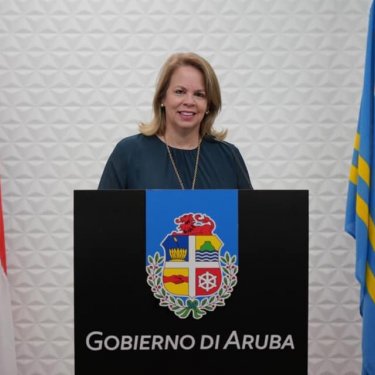Covid-19 crisis used as pretext to obstruct reporting in Dutch Antilles

A journalist in Aruba working for the Dutch public broadcasting service is being prosecuted for violating the curfew that was declared on the island to contain the pandemic, although she was just doing her job. Reporters Without Borders (RSF) calls on local authorities to drop the charges and condemns the hardening conditions for journalists in the Dutch territory.
Sharina Henriquez, an Aruban reporter of the Caribbean Network, which is part of the Dutch public broadcasting service, filed a complaint on 4 June accusing the police of “wrongful arrest, wrongful use of coercive measures, wrongfully referring to her as a suspect, wrongful deprivation of liberty and consequential damage to her reputation.” The complaint also accuses the police of abuse of authority and violating press freedom.
Henriquez was arrested for violating a 9 p.m. to 6 a.m. curfew when she went to Santa Cruz, a town 10 km east of the capital, Oranjestad, on 22 March to cover unrest triggered by the curfew, which had begun the previous day and lasted until 31 May. The police handcuffed her, took her to the local police station and held her for three hours. She now faces judicial proceedings and a fine worth 516 euros. When Prime Minister Evelyn Wever-Croes had announced the curfew, she had said no exception would be made for reporters.
“Aruba’s authorities must drop the charges against Sharina Henriquez, who was just doing her job as a journalist,” said Pavol Szalai, the head of RSF’s European Union and Balkans desk. “The coronavirus crisis must not be used as a pretext for obstructing the work of journalists, who already work under difficult circumstances in the Dutch Antilles.”
Wensly Francisco, member of the General Board of the Dutch Federation of Journalists (NVJ), also calls on the Dutch government to act in favour of press freedom on the Dutch islands, as Aruba and Curaçao are part of the Kingdom of the Netherlands. “The Dutch government must make a strong commitment to establish and support a free and independent press” said the NVJ’s official who added: “The autonomous structure of government in these islands should not be used as a shield to cover violations of press freedom."
In Aruba and the two other main islands in the Dutch Antilles, Curaçao and Sint Maarten, journalists have to operate in an environment marked by precarity, corruption and conflicts of interest. The coronavirus crisis has made things even more complicated for reporters.
Henriquez had been harassed by the authorities before her arrest. After she wrote an article for Caribbean Network about Aruba’s lack of preparation for the pandemic, the government criticized her in other media outlets instead of reacting to her criticism or publishing a response in Caribbean Network. An official also insulted her while she was doing a street interview, preventing her from completing it.
Rick Hart, a journalist working for Radio Hoyer 2 in Curaçao, was suspended in mid-May – suspension being a final warning before dismissal – after he had criticized the fact that journalists had been allowed to ask only questions related to the subject of the given virtual press conference with Curaçao’s Prime Minister.
The radio station, which is privately-owned and depends on advertising, ended up publicly apologising to Hart three days later while the government showed more openness as to the subjects of its virtual press conferences.
The Netherlands – whose territory includes Aruba and Curaçao – is ranked 5th out of 180 countries in RSF's 2020 World Press Freedom Index.



